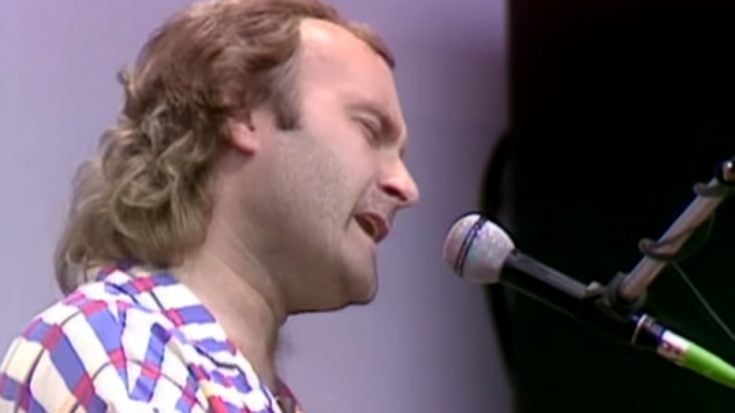3 Iconic ’80s Rockers Who Broke Away to Go Solo

Phil Collins Live in 1985 - Live Aid / YouTube
Bands can be a beautiful mess—full of chemistry, clashing egos, late-night recording sessions, and the constant tug-of-war between creative vision and compromise. As thrilling as the spotlight can be, the backstage reality is often far from glamorous. It’s no wonder that even the most iconic groups eventually face internal friction that pushes some members toward a different path.
By the time the 1980s rolled around, rock music had evolved into a kaleidoscope of styles, from synth-driven anthems to gritty guitar riffs. Amid the sonic experimentation, some band members saw an opportunity—not just to step out of the shadows, but to redefine themselves entirely. The decade became a proving ground for artists who dared to go it alone.
In this article, we’re taking a look at three rockers who made that leap. They were already known for shaping their band’s identity, but their solo ventures revealed new layers, fresh ambition, and, in some cases, career-defining moments. Let’s dive into the stories behind these bold moves.
Phil Collins
When Phil Collins joined Genesis in 1970, it wasn’t as their frontman—it was as their drummer. The band had already been gaining traction in the progressive rock scene, and Collins’ arrival added technical skill and subtle rhythmic flair to their sound. His first recording with the group, Nursery Cryme, hinted at the chemistry that would later define their classic lineup.
Over time, the band evolved, and when Peter Gabriel left in 1975, Collins stepped up to the mic. It was a role he never sought but soon made his own, helping Genesis pivot toward a more accessible sound. Still, by the time the 1980s rolled around, Collins felt the pull of something different—a more personal creative outlet that didn’t have to be filtered through the democratic machine of a band.
His solo debut, Face Value, dropped in 1981 and immediately made waves, thanks in part to the haunting hit “In the Air Tonight.” With its stripped-down emotion and unique production, the album signaled that Collins wasn’t just a drummer who could sing—he was a singular voice. While he would remain with Genesis until 1996, his solo career took on a life of its own throughout the decade.
Ozzy Osbourne
Ozzy Osbourne didn’t just front a band—he helped invent a genre. As the unmistakable voice of Black Sabbath, his eerie vocals and unpredictable stage presence defined heavy metal in its earliest form. But while the band built a legacy on darkness and distortion, behind the scenes things were spiraling out of control.
By 1979, Ozzy’s substance abuse and erratic behavior had reached a breaking point. The band made the difficult decision to part ways with their original frontman, and just like that, the Prince of Darkness was on his own. Many thought that would be the end of his career. Instead, it was the beginning of something bigger—and wilder.
With the release of Blizzard of Ozz in 1980, Ozzy proved he didn’t need Sabbath to stay relevant. “Crazy Train,” his debut solo single, became an instant classic, combining his signature menace with arena-ready riffs and hooks. His solo career not only revitalized his image but also introduced him to a new generation of fans who didn’t need a band name to be sold.
George Michael
George Michael always had star power, but it took a few years and a few hit singles for the rest of the world to catch on. Wham! burst onto the scene in the early ’80s with a playful sound and flashy image that made them instant teen favorites. With upbeat anthems like “Wake Me Up Before You Go-Go,” they embodied a bright, youthful version of pop stardom.
But George had more to say—and a deeper musical ambition than Wham! could contain. As the duo’s fame grew, so did his creative restlessness. By 1986, Wham! played their farewell concert, and the following year, George Michael released Faith, a bold solo album that was sultry, introspective, and entirely his own.
The transition paid off. Faith became one of the defining albums of the decade, fueled by hits like “Father Figure” and “One More Try.” George Michael didn’t just escape the boy band box—he shattered it. His solo work revealed layers of artistry, soul, and vulnerability that set him apart as one of the most compelling pop artists of the era.














